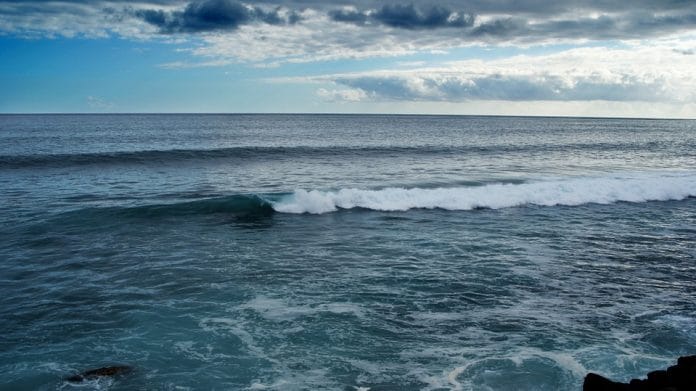Before 2020 became the year of Covid-19, it was set to be the “year of the oceans.”
With only a small portion of them protected by law or agreement, expectations were high that bold steps to preserve biodiversity, rein in overfishing and bolster social responsibility were within reach. Then the coronavirus arrived, and high-profile meetings from the High Seas Treaty (the first global agreement to police and manage international waters) to the United Nations Climate Change Conference were postponed.
The oceans are critical to any effort to slow global warming. Delay in global agreements, given how little time is left to avoid catastrophe, has only made matters that much more desperate.
Waters more than 200 nautical miles from national shores are of critical importance to both fisheries and climate mitigation. The Global Ocean Commission estimates the high seas account for up to $16 billion in annual gross catch and between $74 billion and $222 billion in annual carbon storage. As the world struggles to cut emissions to zero by 2050—a goal scientists say is required to avoid massive planetary shifts—the ocean’s ability to store CO₂ will increasingly diminish, according to new research published last week in the journal AGU Advances.
The current push for marine stewardship and new accords got a boost last year, when scientists confirmed that oceans have absorbed almost one-third of the CO2 humans generated—and that any extra CO2 they absorb will come with immense costs, to ocean life and the environment.
“The ocean is warmer, more acidic, less productive, and rising,” said Justin Kenney, a senior adviser for climate, energy and environment with the UN Foundation. “Work on the high seas, biodiversity, and climate change—it’s all connected.”
Also read: CO2 levels rise despite lockdown, Asia’s water crisis and other global Covid news
The high seas also largely lawless. Covering two-thirds of the Earth’s surface, they are subject to a patchwork of agreements that largely fail to conserve biodiversity, said Sophie Mirgaux, Belgium’s special envoy for the ocean.
Years of meetings and complex negotiations critical to finalizing the High Seas Treaty were coming to a head this spring. After three Biodiversity Beyond National Jurisdiction (BBNJ) meetings since September 2018, just three issues remained to be resolved: equitable commercialization and conservation of marine genetic resources; designation of marine protected areas; and how to conduct environmental impact assessments for deep sea mining. The fourth meeting, which was originally scheduled for late March in New York City, has been postponed until early 2021.
Mirgaux and her international counterparts are continuing negotiations remotely to finalize treaty language on these topics. “We have to maintain a sense of urgency, and not let [this effort] blow away with the wind,” she said.
Their task has been made more difficult, since three other high profile meetings that aimed to map a strategic future for oceans—the UN Ocean Conference, the Convention on Biological Diversity COP15 and the UN Climate COP26—were postponed until 2021. “There is a real concern we’ll lose momentum, which we don’t get very often on ocean issues,” said Kenney.
The pandemic may exacerbate an already dire situation. Illegal and unreported fishing may be getting worse as in-person monitoring on vessels and at port has been curtailed, said David Balton, former U.S. ambassador for oceans and fisheries and a senior fellow at the Woodrow Wilson Center in Washington, D.C.
“Industry isn’t taking a break,” said Erik Giercksky, head of the UN Global Compact, an initiative that encourages businesses to adopt sustainable policies.
If anything, Giercksky said, Covid-19 demonstrates the need for strong global collaboration to tackle these urgent issues, and temper the nationalistic forces that have stymied multilateral discussions to grow sustainable ocean businesses—including seafood traceability, improved labor rights and zero-emission ocean shipping.
The shipping industry has set an ambitious target to reduce greenhouse gas emissions by 50% in 2050.
“The next two years are critical because there are 50,000 vessels, with lifetimes of 20-25 years, and we need to make changes to meet our 2050 ambitions,” said Melanie Moore, head of sustainability at Wilhelmsen, the global shipper based in Norway. Wilhelmsen plans to have hydrogen fuel available for coastal vessels in 2024, but “it’s not as easy as just changing the fuel,” said Moore.
The global industry needs both government commitments and oversight to develop not just alternative fuels, but the regulations and infrastructure for the eventual transition, she said.
In a display of that commitment, the European Union recently published a plan to protect 30% of European land and seas by 2030—an important first step towards a global goal for oceans set by the International Union for Conservation of Nature. That target took an almost immediate hit June 5 when U.S. President Donald Trump issued an executive order reopening the only marine protected area in America’s Atlantic waters to commercial fishing.
The 4,913-square mile Northeast Canyons and Seamounts Marine National Monument was created by former President Barack Obama in 2016. – Bloomberg
Also read: Coronavirus pandemic can finally bring an end to our exploitation of the ocean






